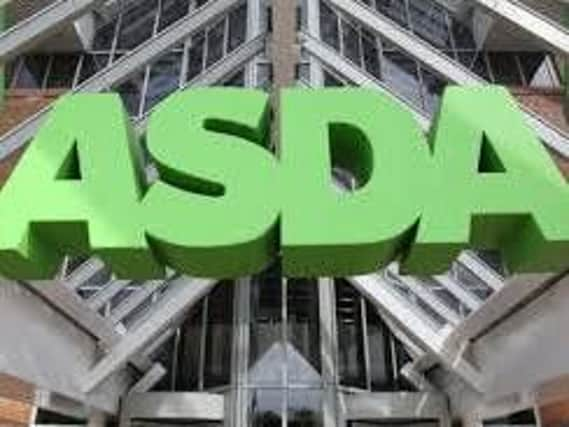Asda returns to growth


The Leeds-based supermarket chain said like-for-like sales rose 1.8 per cent in the three months to June 30
This is the first positive quarter after 11 consecutive quarters of diminishing sales as shoppers have fled to discounters Aldi and Lidl, which can be 10 per cent cheaper than the leading supermarkets. It is also a vast improvement on the 7.5 per cent fall that Asda reported this time last year.
Advertisement
Hide AdAdvertisement
Hide AdAsda, which is owned by US retail giant Walmart, reported one of its most successful Easter trading periods on record, with sales up 16 per cent. Removing the Easter impact from the quarter means that comparable sales rose 0.7 per cent on the same period last year.
Walmart president and CEO, Doug McMillon said: ”We’re encouraged that the UK delivered positive comp sales. In June, I visited Asda to see the progress being made. Customers are responding to investments in price and store experience by visiting the stores more often and increasing their basket sizes.
“There’s still much more to be done, but we’re clearly headed in the right direction.”
Asda president and CEO, Sean Clarke, said: “Our continued focus on delivering great value and service meant 275,000 new customers chose to shop at Asda in the second quarter, particularly during Easter, which saw us return to positive comp growth.
Advertisement
Hide AdAdvertisement
Hide Ad"Recognition should go to our store colleagues for the progress made from 2016 but we know we need to continue to up our game to be in the best shape possible.
"We will continue to work collaboratively with our suppliers to create the best products, make investments where they matter most to our customers, and ensure that we are fit for purpose in what remains a competitive market.”
Asda has been the worst performer of the big four for some time although there have been signs of improvement recently.
According to the latest Kantar Worldpanel data, Tesco, Sainsbury’s and Morrisons saw sales increases of 2.3 per cent, 2.2 per cent and 2.1 per cent respectively in the 12 weeks to July 16.
Advertisement
Hide AdAdvertisement
Hide AdOver this period, Asda managed to attract an additional 398,000 new shoppers and increased sales by 1 per cent year on year.
Fraser McKevitt, head of retail and consumer insight at Kantar Worldpanel, believes that many mainstream retailers are prioritising own label as they want to offer shoppers cheaper goods.
Asda’s new budget “Farm Stores” meat and produce lines are now finding their way into over a quarter of Asda’s baskets, generating sales of over £58m.
“Asda took a long hard look at what Tesco did with own brands. In many ways they are looking to copy Tesco’s strategy,” said Mr McKevitt.
Advertisement
Hide AdAdvertisement
Hide Ad“It doesn’t in any way suggest an inferior product. If people are attracted to low prices and high quality, they will pick up their other shopping at Asda.”
When inflation rises, shoppers are driven to own label and Kantar Worldpanel predicts that inflation could hit 4 per cent over the next couple of months.
“This is presuming no other economic things happen. There is a whole host of unresolved issues around Brexit to get through,” said Mr McKevitt.
The supermarket sector has seen market growth of more than 3 per cent for the fourth consecutive period, according to Kantar Worldpanel‘s figures for the 12 weeks to July 16.
Mr Clarke is credited with reducing prices, getting rid of superfluous stock and introducing discount level brands such as Farm Stores.